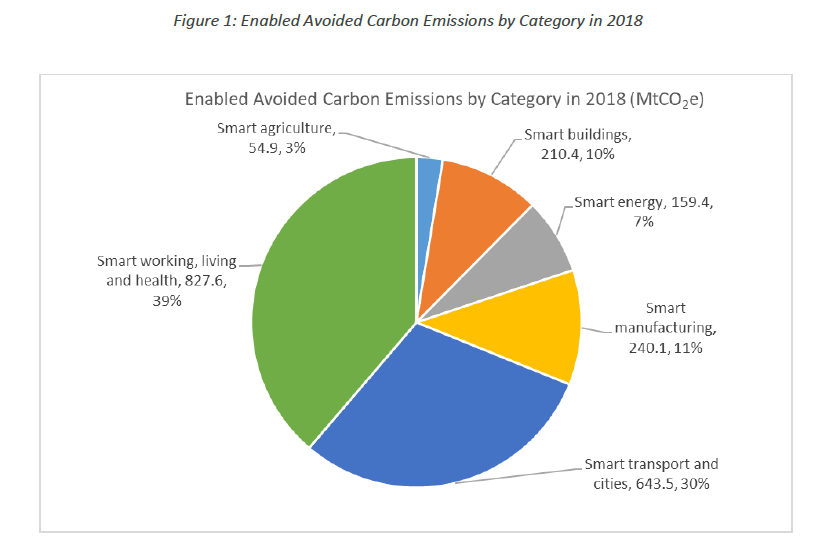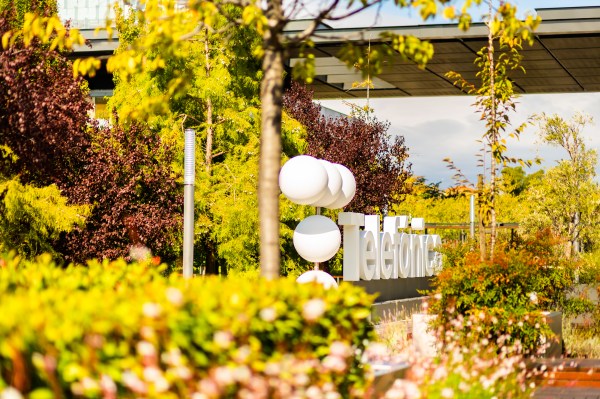The world needs to halve emissions by 2030 to limit global overheating to 1.5°C. Mobile network enabled technologies form an important part of the decarbonisation solution, enabling rapid emission reductions while improving quality of life and supporting economic growth.
This is one of the messages of the new study commissioned by GSMA, “The Enablement Effect: The impact of mobile communications technologies on carbon emisión reductions”. The use of mobile technology enabled a global reduction in Greenhouse Gas (GHG) emissions of around 2,135 million tonnes CO2 last year, according to a new study commissioned by the GSMA – a quantity approximate to the total emissions emitted yearly by Russia. The emissions savings were almost ten times greater than the global carbon footprint of the mobile industry itself.
The new report, produced in collaboration with the Carbon Trust, an independent sustainability specialist, is being presented at the 2019 United Nations Climate Change Conference (COP25) held in Madrid this month.
“The emissions savings are almost ten times greater than the global carbon footprint of the mobile industry itself”
It found that the majority of avoided emissions made possible by mobile technologies were the result of significant reductions in energy and fuel consumption. In 2018, mobile technologies such as Machine-to-Machine (M2M) and the Internet of Things (IoT) enabled a 1.44 billion MWh reduction in energy and saved 521 billion litres of fuel, globally.
“The mobile ecosystem enabled the savings of enough electricity and gas last year to power more than 70 million houses for an entire year in the US, and enough fuel for all 32.5 million registered cars in the UK to drive for 19 years,” said Mats Granryd, Director General of the GSMA. “Today’s study underlines how mobile and smart technologies are powering sustainable economic growth while enabling the avoidance of emissions across multiple industry sectors. These technologies will be crucial to the world reaching its Net Zero targets.”

“Climate change requires a collective effort across governments, businesses and civil society if we are going to succeed in limiting global temperature increases to within 1.5 degrees,” said Tom Delay, CEO of the Carbon Trust. “This analysis shows the positive role that mobile technology is playing in the evolution of other sectors and is a great example of what is possible.”
Positive impact on key sectors
The majority of avoided emissions from M2M technologies are primarily in buildings, transport, manufacturing and the energy sector – sectors that make up a large portion of global GHG emissions. For example, savings in buildings are a result of technologies that improve energy efficiency such as building management systems and smart meters. In the transport sector, the use of telematics can improve route optimisation and vehicle fuel efficiency.
Within manufacturing, the use of mobile technology for storage and inventory management greatly reduces the overall level of inventory and area needed, increasing efficiency and decreasing energy use for lighting and cooling. And smart grids within the energy sector utilise mobile communications technology to help monitor and regulate electricity demand and transmission, to improve coordination and distribution efficiency. Additionally, small-scale renewable electricity generators are able to participate in the wider market by using M2M connections, increasing the amount of green and local energy in the national grid.
“The majority of avoided emissions from M2M technologies are primarily in buildings, transport, manufacturing and the energy sector”
Sustainable behaviours thanks to smartphones
Meanwhile, personal smartphone usage is enabling emissions reductions due to encouraging behaviours such as reduced travel for commuting and for leisure, also thanks to mobile shopping and mobile banking apps; the increase of public transport by using apps providing real-time updates and accommodation sharing for short stays and holidays. All of this, combined with the decarbonization of key economic sectors, is part of the response to climate change. Go for it!












